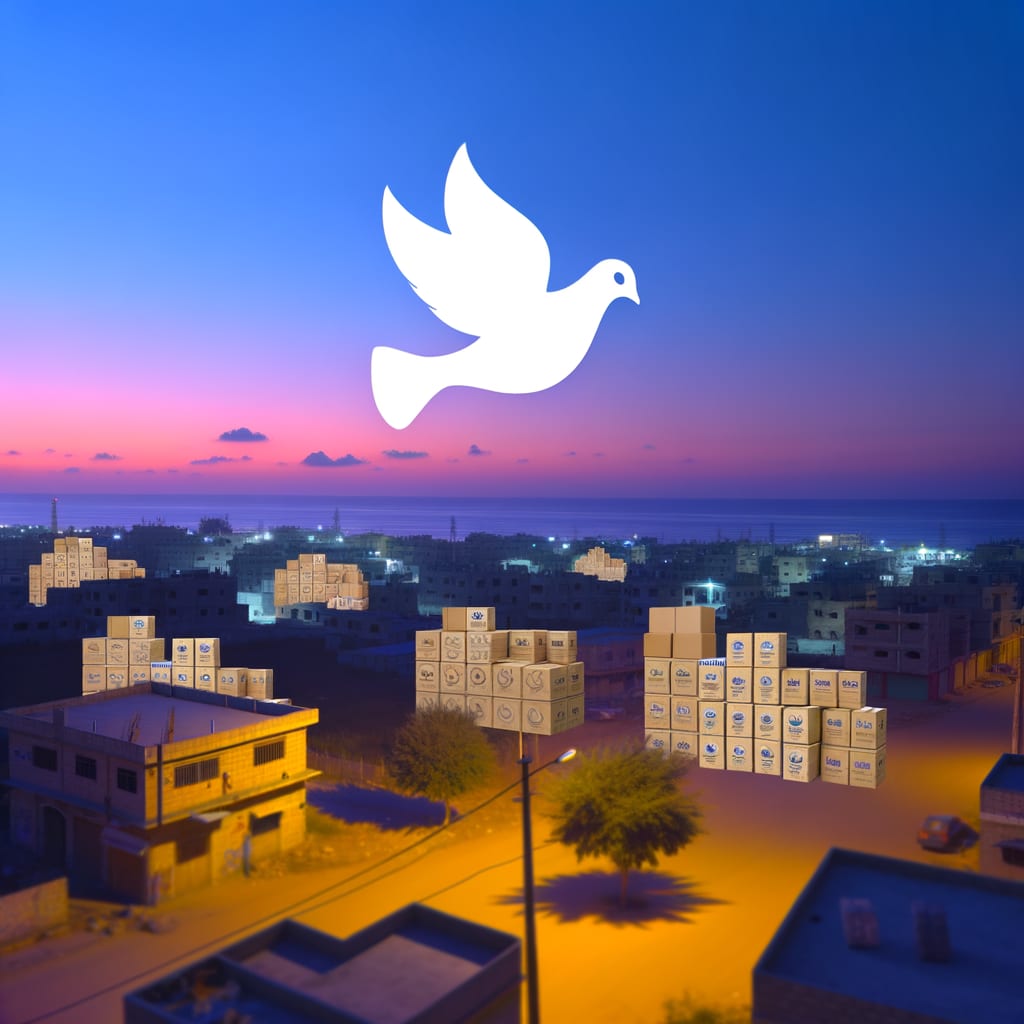Humanitarian Crisis in Gaza Prompts International Outcry, Calls for Increased Aid and Sanctions
The ongoing humanitarian crisis in Gaza has sparked international concern, with President Trump acknowledging starvation
in the region and promising more aid under Israeli distribution. However, this announcement has been met with skepticism and criticism amid escalating tensions, accusations, and global pleas for significant intervention.
Background and Context
Gaza, an occupied Palestinian territory, has been grappling with a deepening humanitarian crisis, reaching unmatched and devastating proportions,
as stated by Rawhi Fattouh, the speaker of Palestine. The territory's residents struggle to access essential supplies, with food prices skyrocketing to extraordinary heights, making it prohibitive for many Gazans. Meanwhile, Israel continues to block aid to the region, exacerbating the situation.
The dire conditions have led to an increase in waterborne diseases, warned by international relief organization Oxfam, which could potentially escalate into a deadly catastrophe. The situation has attracted the attention of EU lawmakers, but the response has been described as disjointed, late, and terribly weak,
by the Tehran Times.
Key Developments
In a significant development, the US recently contradicted the Israeli claim that Hamas has been stealing aid. An internal report from the US government found no evidence to support this allegation. This report was backed by an analysis from USAID and statements from two senior Israeli army officers, further undermining the Israeli justification for restricting food deliveries.
Germany's plan to airlift aid into the region, along with similar initiatives from other countries, has been criticized as futile and symbolic by non-governmental organizations. The United Nations has also raised concerns, stating that the distribution of aid is far from being adequate,
and highlighting the dire need for a more efficient system.
Reactions and Implications
The crisis in Gaza has prompted a series of international reactions. Fifteen countries, led by France, have signed a joint declaration demanding an immediate ceasefire, the unconditional release of all captives held by Hamas, and a two-state solution. The French foreign minister, Jean-Noel Barrot, has criticized the Gaza Humanitarian Foundation's militarized aid distribution, calling for an end to its activities.
Slovenia has taken a strong stance, imposing an arms embargo on Israel, and summoning the Israeli ambassador to protest the worsening humanitarian crisis in Gaza. Meanwhile, the UK-based Hind Rajab Foundation has filed a formal criminal complaint against Israeli Naval Commandos over an attack on a Gaza-bound aid ship.
Current Status
The crisis continues to unfold, with no immediate resolution in sight. The international community's efforts seem fragmented and insufficient in the face of the escalating humanitarian disaster. The need for a unified, effective response is more urgent than ever, as the people of Gaza continue to struggle for survival.

